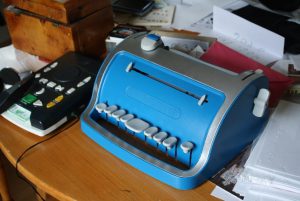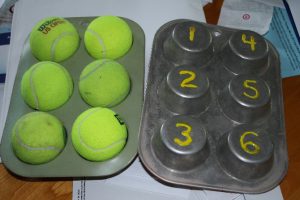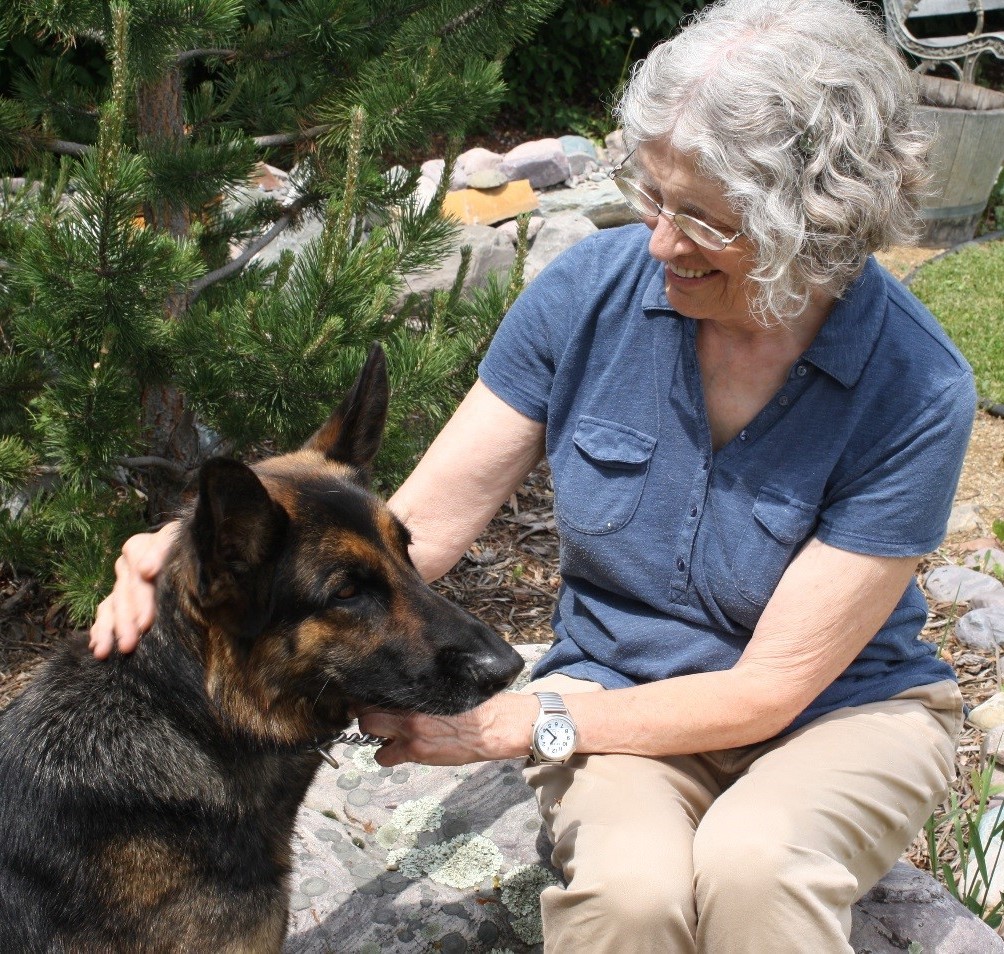When your vision fails, you experience the ‘grieving process.’ That’s what people say, and Coreen Faulkner has heard it more than once. But she believes that’s not quite right. “When you go through the stages of grief, I think you’re learning acceptance,” she explained. “But with progressive loss, it’s different. You’re losing a piece of yourself and you’re constantly readjusting. It’s not the same. I don’t want anyone to think it is.” Faulkner knows about grief and progressive loss; she has lost her vision, regained it, then lost it again.
Severely myopic since the age of three, Faulkner recalled awkward teenaged years wearing “thick, coke-bottle glasses,” unable to get a driver’s license. By age 36, she was a single mother of two children and legally blind. Warned that any eye surgery could destroy the little vision she still possessed, she decided to take a chance. She put her faith in an ophthalmologist who believed he could enhance her vision with a laser surgery to seal her retina, followed by cataract surgery. Surgery on her left eye in 1983 and her right eye in 1984 drastically improved Faulkner’s sight; she was able to get a driver’s license for the first time in her life.
By 2009, Faulkner’s children were grown and she had a job she loved, teaching fourth graders at Paxson School. Living within walking distance of her job, Faulkner monitored her vision to be safe. She kept an eye chart in her bathroom, and every morning she would check her vision to see if she could drive to school, or whether she should walk.

Then in 1996, she noticed her left eye was losing ground. In 2009, when she failed to read her bathroom chart with her right eye, she made a doctor’s appointment. “I thought I’d go to the doctor and have him fix it,” she explained. “But he said, we can’t fix it anymore.”
Faulkner continued to teach for a year and a half with the help of an aid, but she worked 60 hours a week trying to correct stories and essays with the aid of a CCTV magnifier. Fearing the strain on her eyes would cause more rapid deterioration of her vision, she made the difficult decision to retire in June 2010. “I went to a job I loved every day,” she said. “So many people can’t wait to retire, but I didn’t. It was a really hard decision.”
Following a retirement she was emotionally unready for, Faulkner found she desperately needed to speak to someone who understood what she was experiencing. “I needed to talk to someone who knew what it was like,” she remembered. “(Counselors) are the best, but they have 20/20 vision. You need a blind person to talk to. Someone to say, ‘There’s life after. It’s hard, but you can make it through.’”
That unmet need for a blind friend to talk to sparked a desire to ensure others do not feel the same isolation. Faulkner began planning a program to offer emotional support to those losing their vision. With the help of Summit Independent Living Center (Summit IL), Faulkner started the Blind and Low Vision Peer Mentoring program. The goal is to be present and offer support and friendship as a person adjusts to losing vision or becoming blind.
The program offers tailored support. It may be that someone only wants to talk to a peer mentor one time. Others may want information and technological support. For some, a friendship with weekly calls or visits is most helpful. “There is a time to speak to someone else who is walking the walk,” Faulkner explained. “It’s scary to be told you’re never going to see again. Or that your vision is never going to get better, only worse. Learning to live with that takes the time it takes, but we want to help people make a healthy adjustment.”

Currently, Faulkner’s program has six mentors, including one sighted family member. Summit IL provides a home base, and Summit’s Peer Advocacy Coordinator, Chris Clasby, provides 6-8 hours of training for individuals interested in becoming a peer mentor for the program.
Faulkner believes that mentors themselves gain from the program. “For many blind people, they think they can’t be of service to anybody,” she said. “That’s a need people have, especially if you were of service earlier in your life. Mentoring is a way blind people can serve and be supportive.”
Faulkner hopes to grow the program to serve those with blindness or low vision throughout Montana. “Talking to other people who have been through a similar experience, or are going through it now, can help someone find their own way,” she said. “Because they do have to find their own way. You just hope you can say that one thing that will help.”
[To receive mentoring, or to become a peer mentor, call Coreen Faulkner at (406) 370-9305, or email coreen.faulkner@gmail.com. You can also visit the Blind and Low Vision Peer Mentor Forum at Summit’s web site. To participate in the forum, you will need to register using the link in the upper-right corner. Registration and sign-in are required to keep the group as private and safe as possible. Once your registration has been approved, log in and click ‘Blind and Low Vision Mentoring.’ If you have difficulty accessing the forum, please contact Donna Marie Robnett at dmrobnett@gmail.com.]

